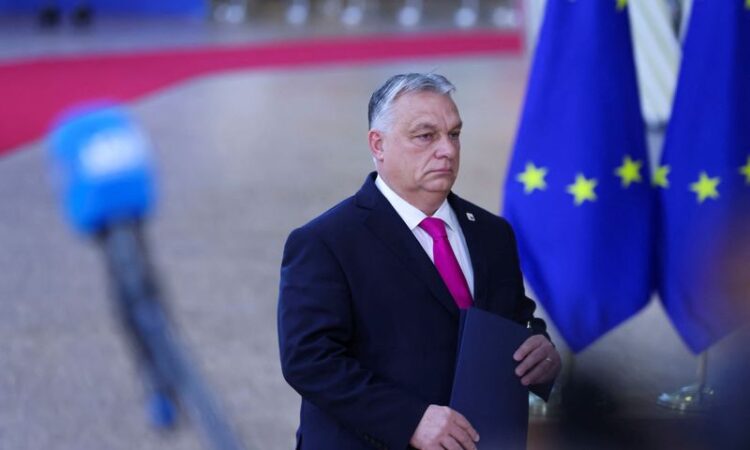
BRUSSELS (Reuters) -Hungary could back granting long-term financial aid to Ukraine outside of the European Union budget, Prime Minister Viktor Orban said on Thursday, while reiterating his opposition to start accession talks with Kyiv.
Orban spoke on arriving to a summit of EU leaders, where all other EU countries want to provide Ukraine with 50 billion euros ($54.50 bln) in budget support through 2027, and advance Kyiv’s membership bid as the country’s war with Russia drags on.
Those decisions require unanimity among the bloc’s 27 member states, something Orban has ruled out.
Orban said there was no time pressure to decide on more financial aid to Ukraine because short-term support was already secured. For longer-term backing, he said it needed to be fixed outside of the bloc’s joint coffers.
“We have to manage this outside of the budget. And we support it,” said Orban.
He also said Ukraine had not met all of the 7 conditions the EU had set to launch accession negotiations.
“There is no reason to discuss anything because preconditions were not met. So we have to come back later on, revert to that issue again when it is fulfilled by the Ukrainians,” Orban said, adding that “we are not in a position to start to negotiate”.
Speaking on Wednesday, the EU’s chief executive said reforms passed in Ukraine last week meant Kyiv now met 6 out of those 7 conditions, with the only outstanding requirement being a new law on lobbying to limit oligarchs’ influence in the country.
EU officials and diplomats suspect he is using the issue of support to Ukraine as a bargaining chip, hoping to obtain funds frozen by the bloc over concerns about the rule of law in Hungary. Orban said on Thursday there was no link.
He also mentioned a continent-wide European Parliament election next June, saying the bloc should “behave democratically” and await a new political consensus that would emerge, potentially signaling a months-long delay to any start of talks to Ukraine.
($1 = 0.9175 euros)
(Reporting by Krisztina Than, Bart Meijer, Writing by Gabriela Baczynska, Editing by Charlotte Van Campenhout)






